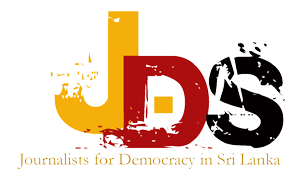Time for Sri Lanka to come clean regarding cluster munitions
ITJP_JDS_cluster_munitions_report
Johannesburg: As members of the Convention on Cluster Munitions meet 2- 4 September 2019 in Geneva , the President of the organisation needs to come clean on its own record with these devastating weapons. For the last year Sri Lanka has led the 100 member treaty body designed to address “the unacceptable harm caused to civilians” by cluster munitions. However, Sri Lanka has continued to deny the existence of cluster munition victims on its soil, reporting in February that it had no victims and therefore no need for victim assistance.
This flies in the face of the testimonies of scores of war survivors, including UN and de-mining staff inside and outside Sri Lanka – testimonies that bear witness to multiple casualties caused by cluster munitions attacks during the final phase of the civil war in 2009. Also disregarded are persistent reports of cluster remnants being discovered in Sri Lanka post-war, and even the findings of a domestic Commission which said that it couldn’t ignore evidence of civilians being hit by cluster munitions. The Government denies that it used cluster munitions during the war but fails to grasp that whether that is true or not, the State remains responsible for caring for victims.
Buried Wounds: Sri Lanka’s Cluster Munition Victims is a preliminary report commissioned by the International Truth and Justice Project based on interviews conducted by activists inside Sri Lanka. Eighteen Tamil war survivors in the north of the island describe their injuries from cluster munitions in February and March 2009. This is in addition to 5 cluster victims abroad previously interviewed by the ITJP . Nearly all those interviewed said that authorities refused to state in medical records that the survivors’ injuries had been caused by cluster ordnance. They also described being intimidated into keeping silent about the true nature of their injuries.
“The culture of fear spread by the Sri Lanka Government is preventing victims from revealing the true source of their wounds, compelling them to live in physical and psychological pain and without reparations,” say the report authors.
